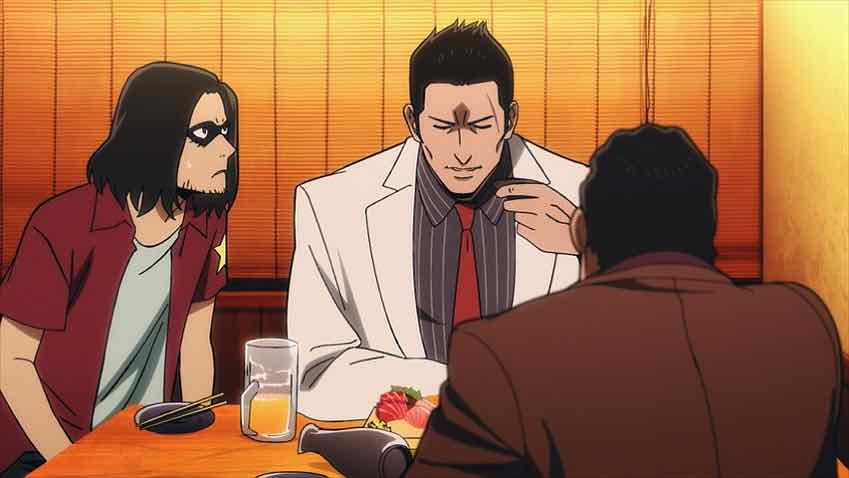 An episode like this one perfectly illustrates, I think, how Illegals manages to pull off such a difficult balancing act. It’s able to be both an accessory to the parent series and a free-standing entity in its own right, and be essential in both roles. It’s only natural that someone like Stain would be part of Vigilante, given its themes. But giving him a believable origin story is quite an achievement. One of the most legendary characters in the franchise (I would argue its most interesting villain) is a risky proposition to take on, but his story as depicted here settles into series canon with ease.
An episode like this one perfectly illustrates, I think, how Illegals manages to pull off such a difficult balancing act. It’s able to be both an accessory to the parent series and a free-standing entity in its own right, and be essential in both roles. It’s only natural that someone like Stain would be part of Vigilante, given its themes. But giving him a believable origin story is quite an achievement. One of the most legendary characters in the franchise (I would argue its most interesting villain) is a risky proposition to take on, but his story as depicted here settles into series canon with ease.
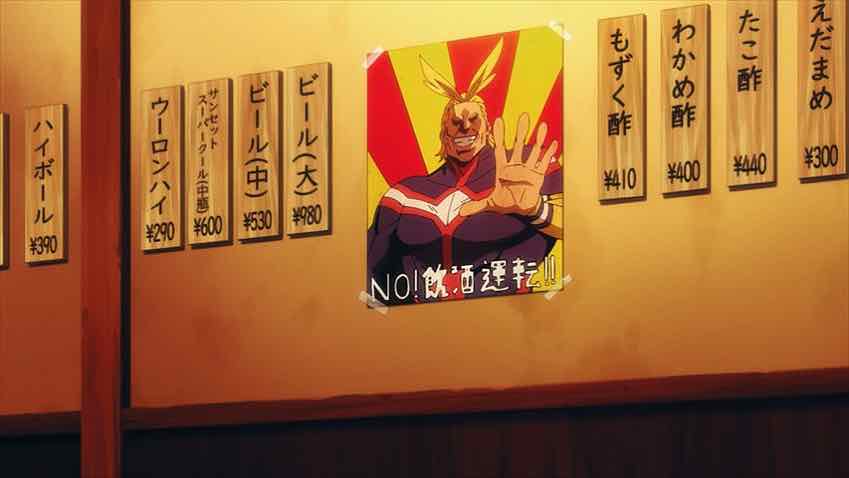 There were certainly signs there in Stendhal that might make one see this coming. But that singular and arrogant sense of justice was turned in a very different direction. Stendhal is a true vigilante in every sense, not just standing in for absent heroes but taking the law into his own hands, doing things heroes won’t or can’t. He fancies himself judge, jury, and executioner (that’s in-character) but it’s villains he seeks to eliminate. Someone like Hachisuka is a useful tool in accomplishing his ends, but in way would he ever consider her an ally.
There were certainly signs there in Stendhal that might make one see this coming. But that singular and arrogant sense of justice was turned in a very different direction. Stendhal is a true vigilante in every sense, not just standing in for absent heroes but taking the law into his own hands, doing things heroes won’t or can’t. He fancies himself judge, jury, and executioner (that’s in-character) but it’s villains he seeks to eliminate. Someone like Hachisuka is a useful tool in accomplishing his ends, but in way would he ever consider her an ally.
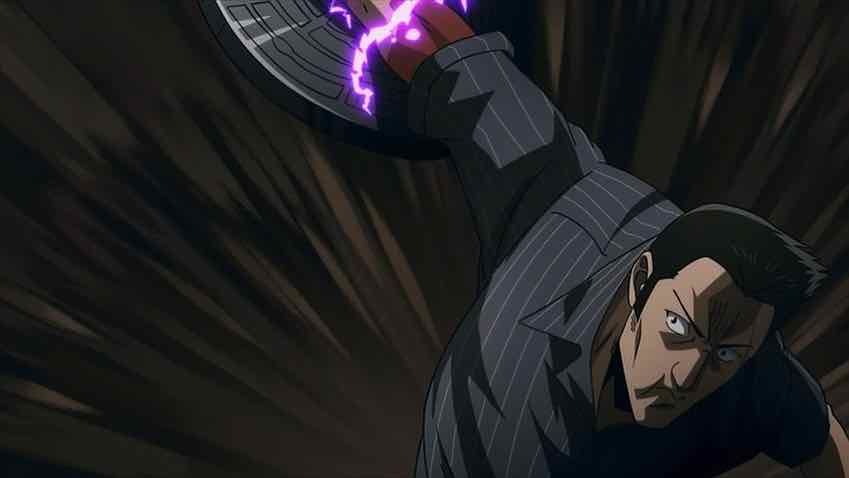 Kuin’s particular utility, in this case, is in proving illicitly obtained blood samples to Stendhal. They’s essential to his quirk “Bloodcurdle”, with which he can freeze anyone whose blood he’s consumed. The limitations are not clear, but it certainly lasts long enough to give him an advantage in seemingly any fight. That includes the yakuza group Abegawa Tenchu, whose leadership he wipes out in a horrifying tsunami of blood. Hachisuka next want to set him against Dox & Murder guy – heretofore known as Kugizaki Souga – who tried to meet with Kouichi and Pop last week. But Souga has had enough of Trigger, and declares his intent to take Stendhal down unaided. Hachisuka at this point takes matters into her own hands, however.
Kuin’s particular utility, in this case, is in proving illicitly obtained blood samples to Stendhal. They’s essential to his quirk “Bloodcurdle”, with which he can freeze anyone whose blood he’s consumed. The limitations are not clear, but it certainly lasts long enough to give him an advantage in seemingly any fight. That includes the yakuza group Abegawa Tenchu, whose leadership he wipes out in a horrifying tsunami of blood. Hachisuka next want to set him against Dox & Murder guy – heretofore known as Kugizaki Souga – who tried to meet with Kouichi and Pop last week. But Souga has had enough of Trigger, and declares his intent to take Stendhal down unaided. Hachisuka at this point takes matters into her own hands, however.
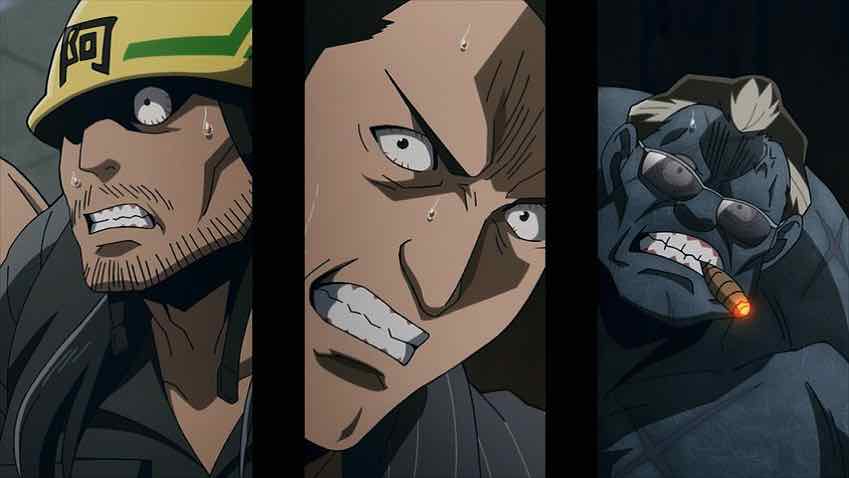 It’s certainly dubious for Kouichi to insert himself between these two, either of whom could end him easily. But Kouichi has heard Souga cry of anguish, and in truth, he has hero’s blood flowing in his veins. There’s a right thing to do, so he does it. Stendhal is not the type to listen to reason. If Kouichi helps an evildoer, he’s therefore evil, no matter the reason. He wounds a retreating Crawler – for reasons that will soon become obvious. And has no compunctions about taking Kouichi out at the same time as Souga. Which is very likely what would have happened, had Knuckleduster not shown up when he did.
It’s certainly dubious for Kouichi to insert himself between these two, either of whom could end him easily. But Kouichi has heard Souga cry of anguish, and in truth, he has hero’s blood flowing in his veins. There’s a right thing to do, so he does it. Stendhal is not the type to listen to reason. If Kouichi helps an evildoer, he’s therefore evil, no matter the reason. He wounds a retreating Crawler – for reasons that will soon become obvious. And has no compunctions about taking Kouichi out at the same time as Souga. Which is very likely what would have happened, had Knuckleduster not shown up when he did.
 It’s illustrative to see Stendhal and Knuckle juxtaposed, because it couldn’t be clearer that there’s a big difference between them. There’s a rationality to what Knuckle is doing – he has a purpose, and at least some modicum of restraint. He’s also impressive as hell, because he keeps taking on – and down – guys with quirks despite seemingly having none of his own. Stendhal sees him as a kindred spirit but that’s clearly not the case. Stendhal carries a persona – he becomes a different person when he’s behind his mask (which is something he’s aware of). Knuckleduster is resolutely who he is, for better or worse.
It’s illustrative to see Stendhal and Knuckle juxtaposed, because it couldn’t be clearer that there’s a big difference between them. There’s a rationality to what Knuckle is doing – he has a purpose, and at least some modicum of restraint. He’s also impressive as hell, because he keeps taking on – and down – guys with quirks despite seemingly having none of his own. Stendhal sees him as a kindred spirit but that’s clearly not the case. Stendhal carries a persona – he becomes a different person when he’s behind his mask (which is something he’s aware of). Knuckleduster is resolutely who he is, for better or worse.
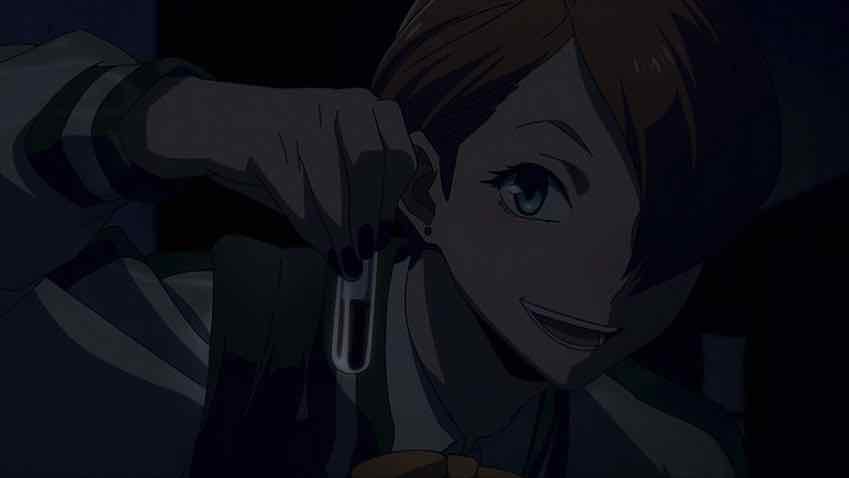 The aftermath of this confrontation – which sees Stendhal with a mangled broken nose – changes him profoundly. Knuckleduster’s condemnation of him finds the mark, and the lesson Stendhal takes away is that he can no longer hide behind his mask and the identity he assumes behind it. In rather gory fashion he symbolically merges the two, and redirects his righteous rage – at those who he now sees as the true problem in society. Not villains, but those pretending at being heroes – those not living up to the hero ideal (as he defines it). Thus the Hero Killer Stain – perhaps Horikoshi Kouhei’s most fascinating creation – is born. Not by his own hand, but in a manner that feels perfectly consistent with his own vision of the character. This Stain is his Stain – he simply takes the character to an even deeper and darker place.
The aftermath of this confrontation – which sees Stendhal with a mangled broken nose – changes him profoundly. Knuckleduster’s condemnation of him finds the mark, and the lesson Stendhal takes away is that he can no longer hide behind his mask and the identity he assumes behind it. In rather gory fashion he symbolically merges the two, and redirects his righteous rage – at those who he now sees as the true problem in society. Not villains, but those pretending at being heroes – those not living up to the hero ideal (as he defines it). Thus the Hero Killer Stain – perhaps Horikoshi Kouhei’s most fascinating creation – is born. Not by his own hand, but in a manner that feels perfectly consistent with his own vision of the character. This Stain is his Stain – he simply takes the character to an even deeper and darker place.
 As for Souga, one can certainly argue whether or not he’s a man deserving of a chance at redemption. But it does appear that something has changed in him, and he’s not the same person he was when we fist met him. He’s seen enough to realize that for his life to have any value, he has to take it in a different direction. And Kouichi provides an example of something very different than anything else in his world – something genuinely heroic, with no apologies for using the term. He’s an odd fit for this world – but that’s part of the genius of Vigilante, and Kouichi as a character.
As for Souga, one can certainly argue whether or not he’s a man deserving of a chance at redemption. But it does appear that something has changed in him, and he’s not the same person he was when we fist met him. He’s seen enough to realize that for his life to have any value, he has to take it in a different direction. And Kouichi provides an example of something very different than anything else in his world – something genuinely heroic, with no apologies for using the term. He’s an odd fit for this world – but that’s part of the genius of Vigilante, and Kouichi as a character.



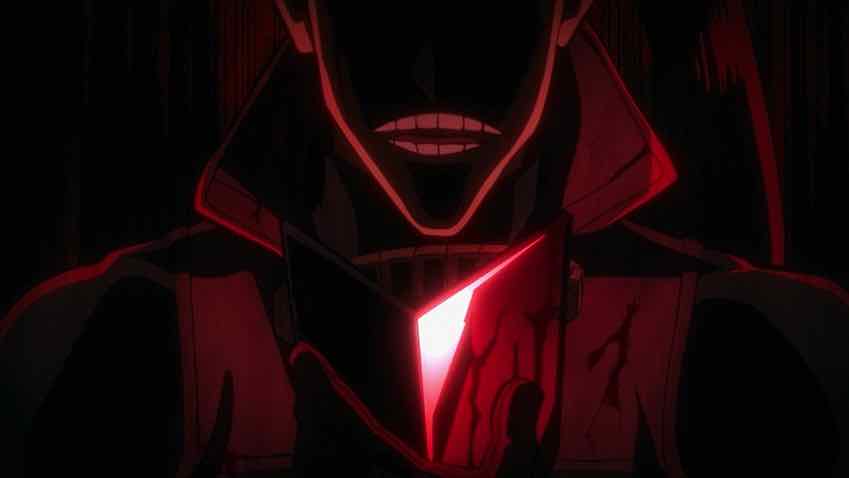
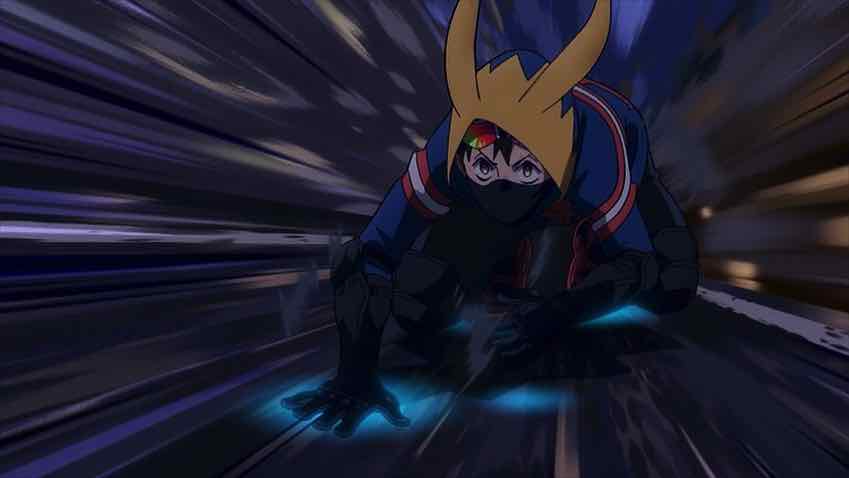
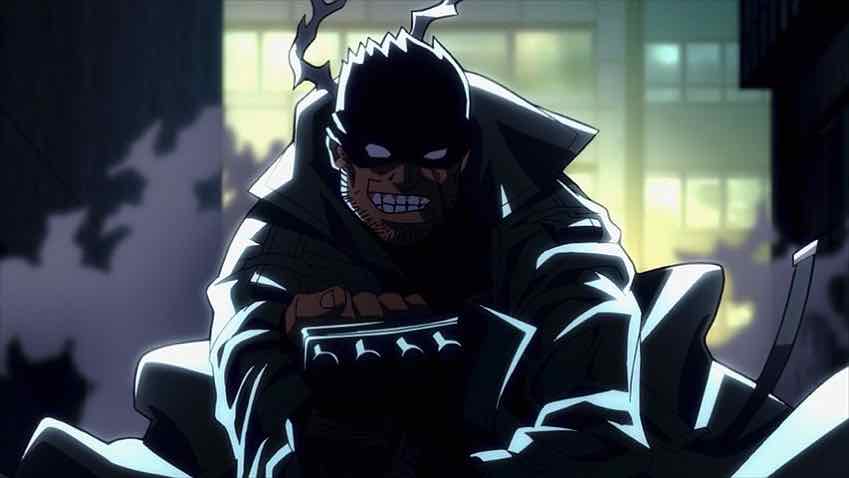
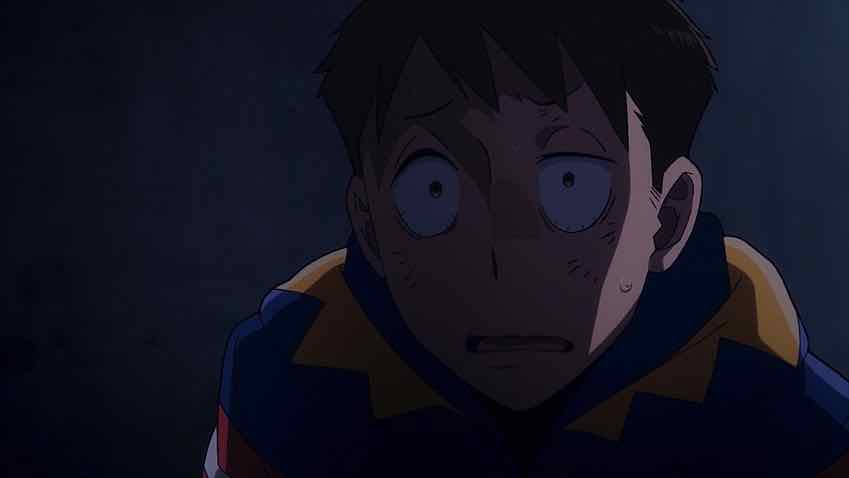

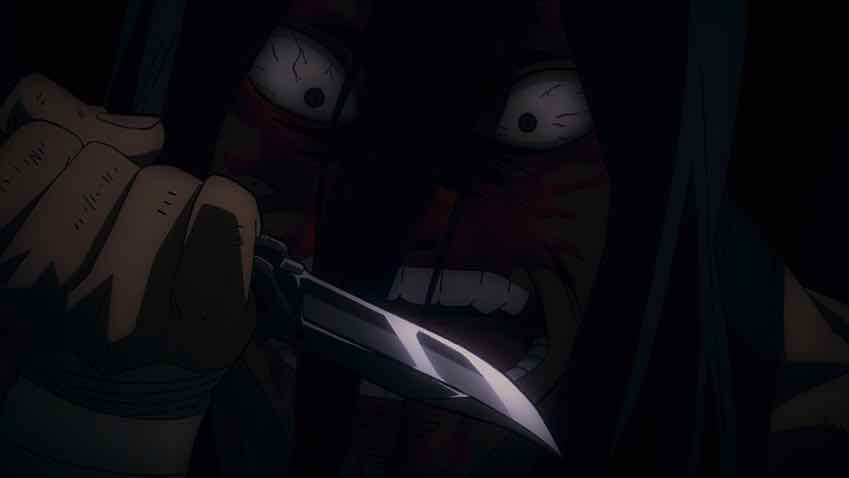

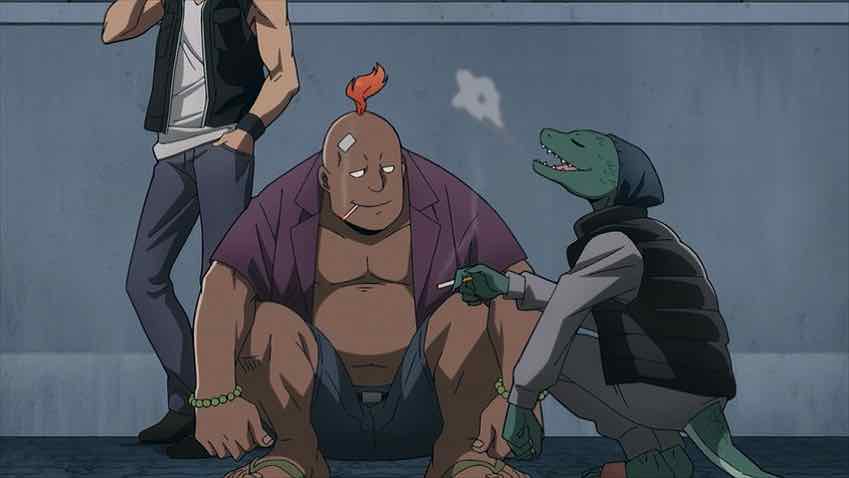
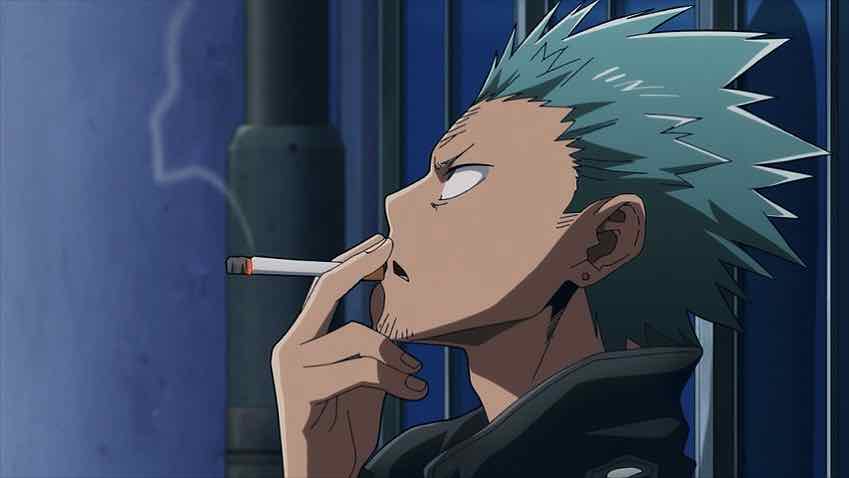
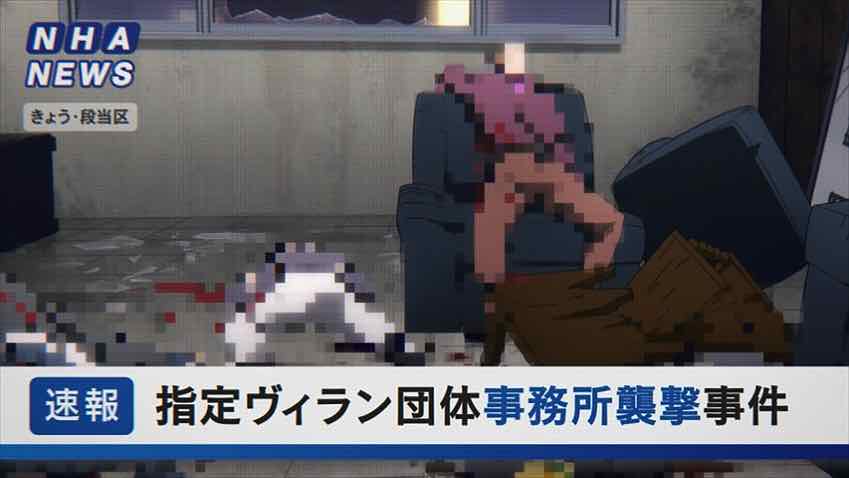
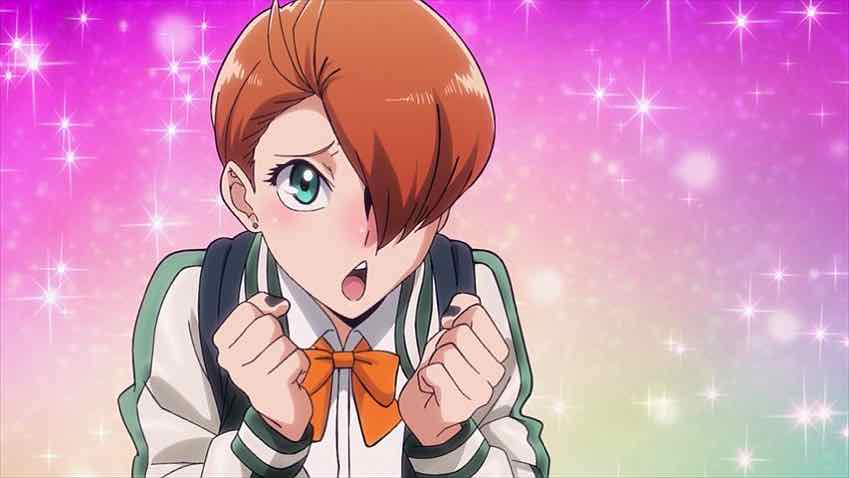

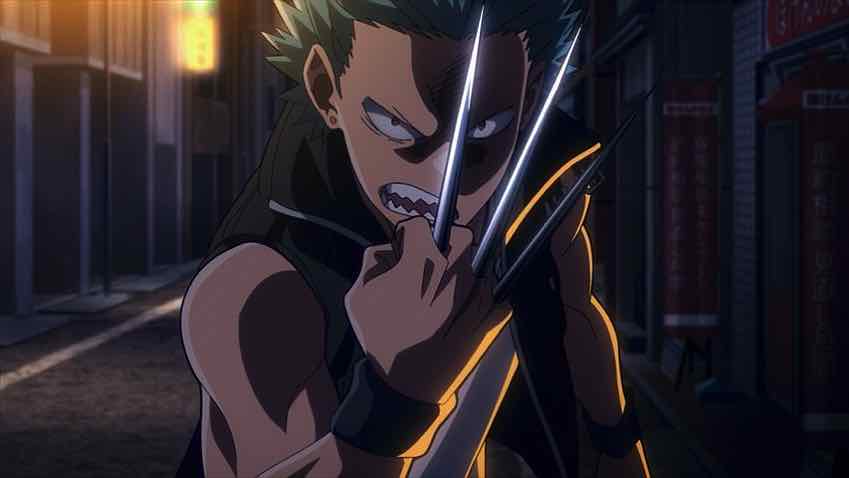
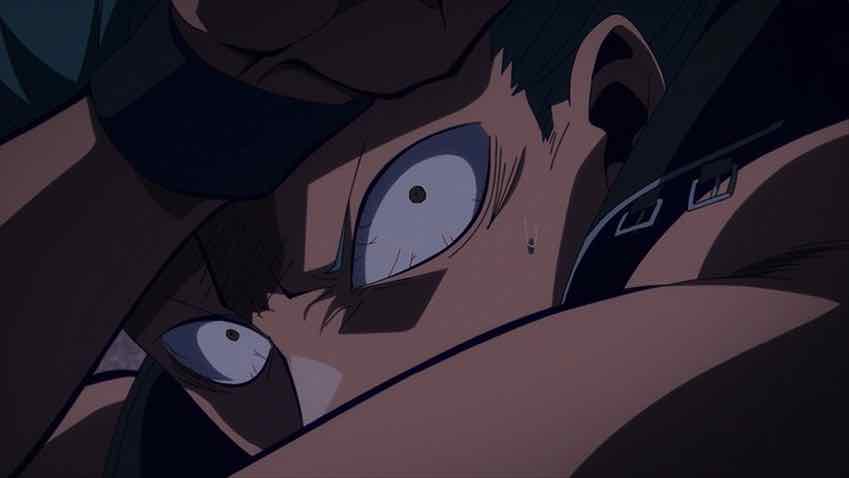

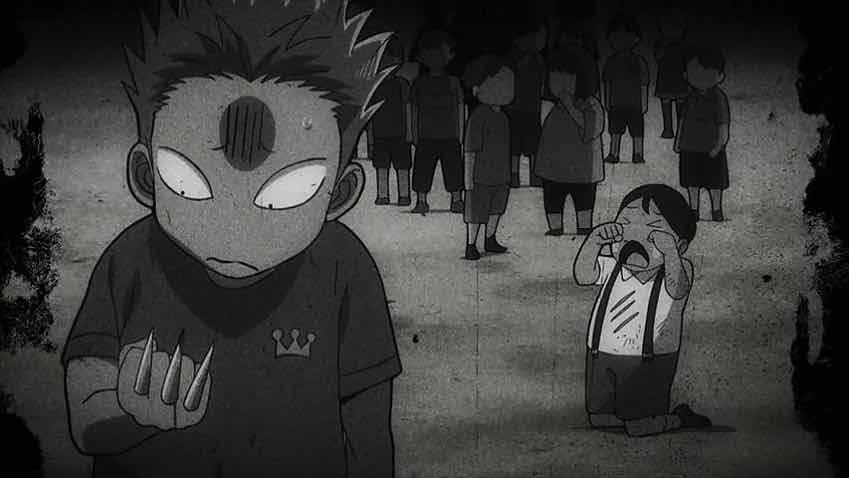
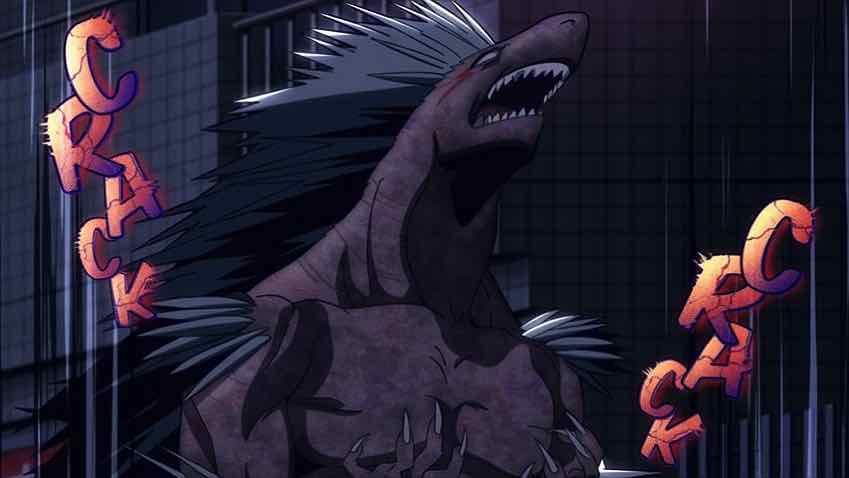
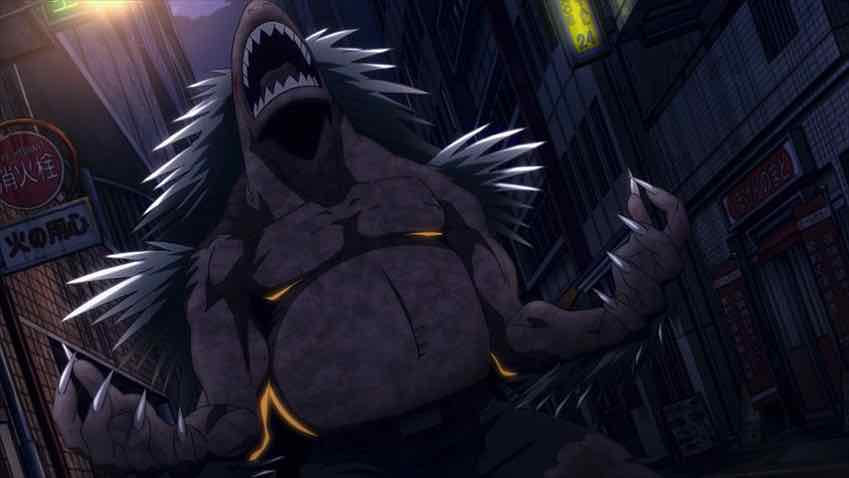
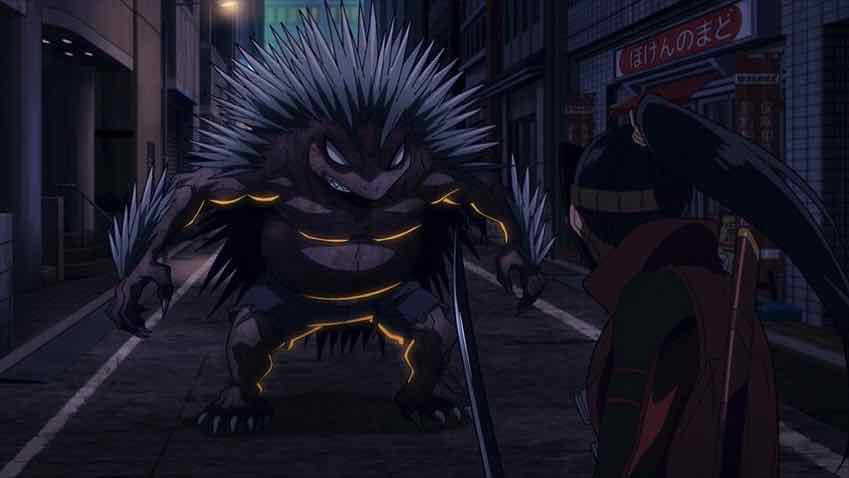
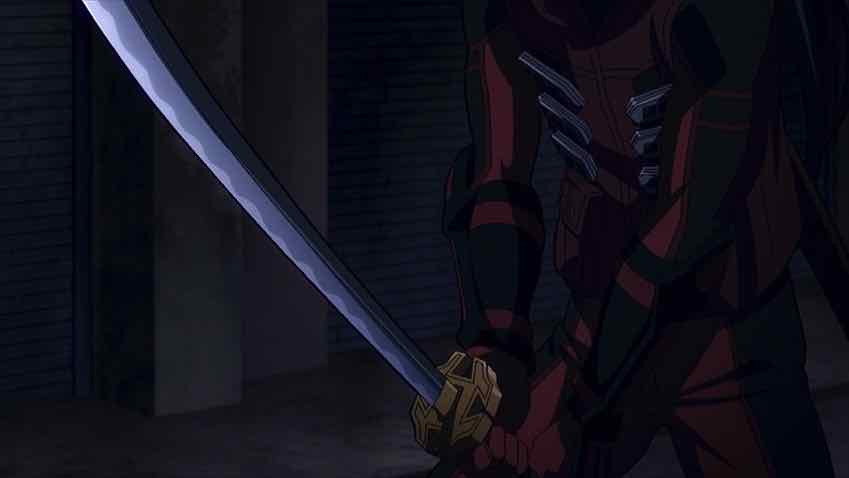
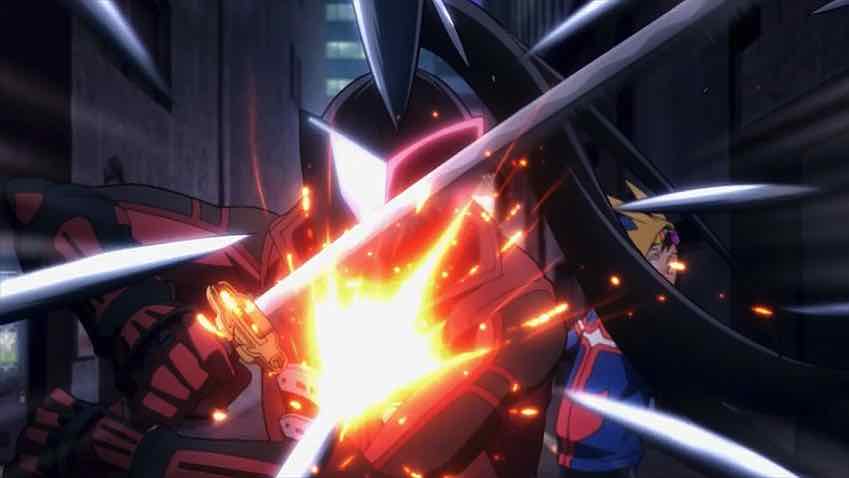
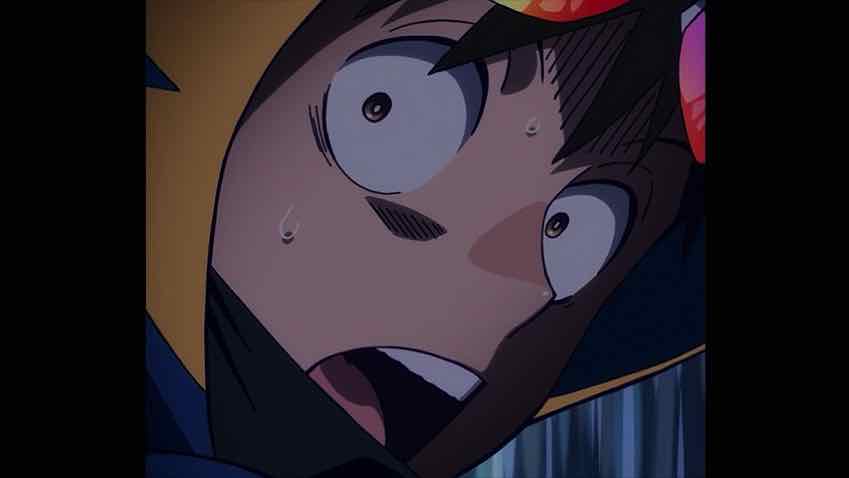
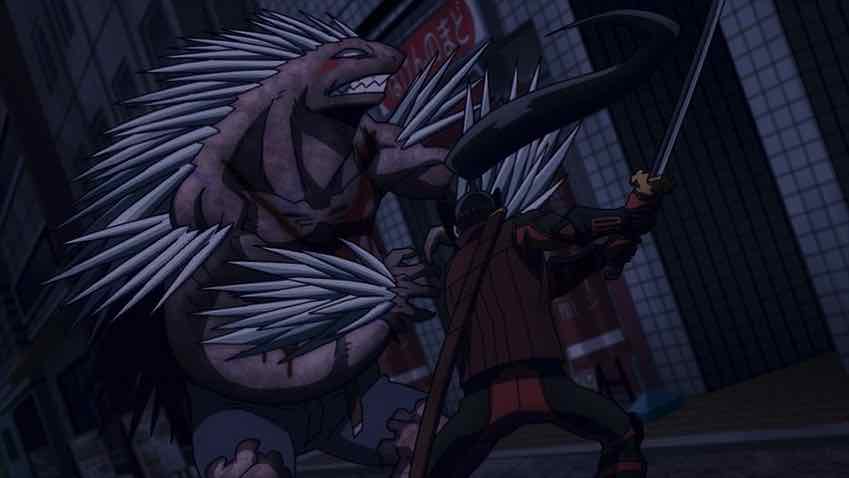
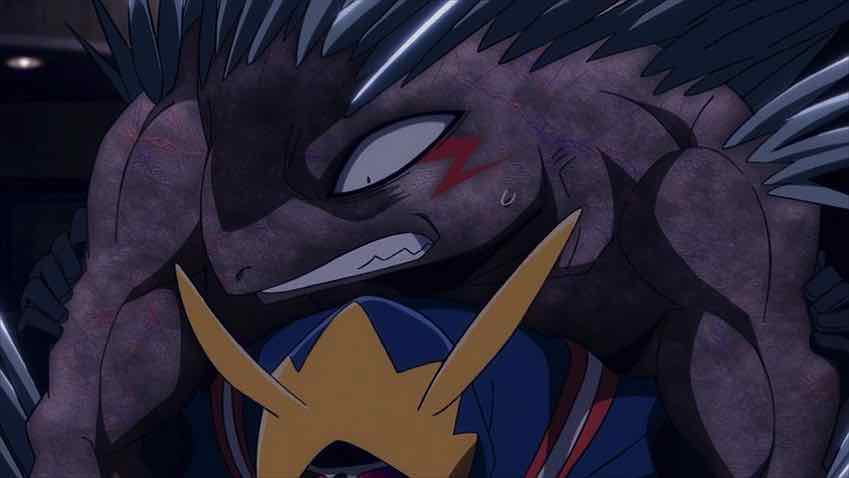
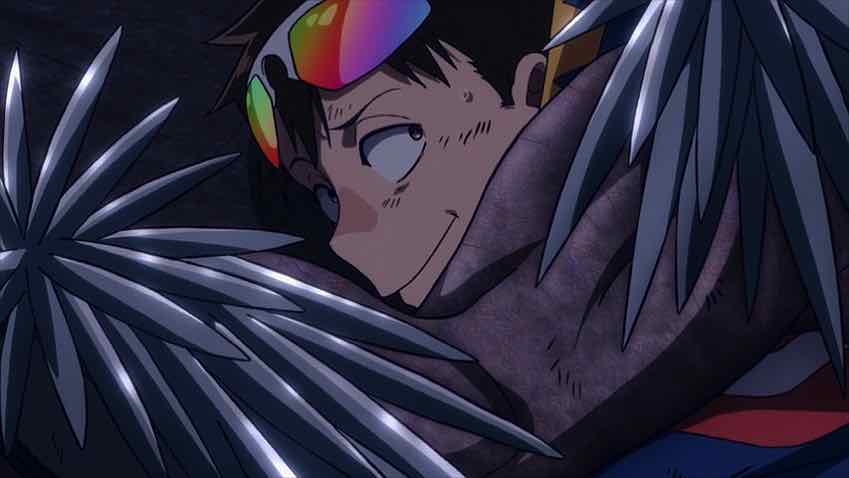
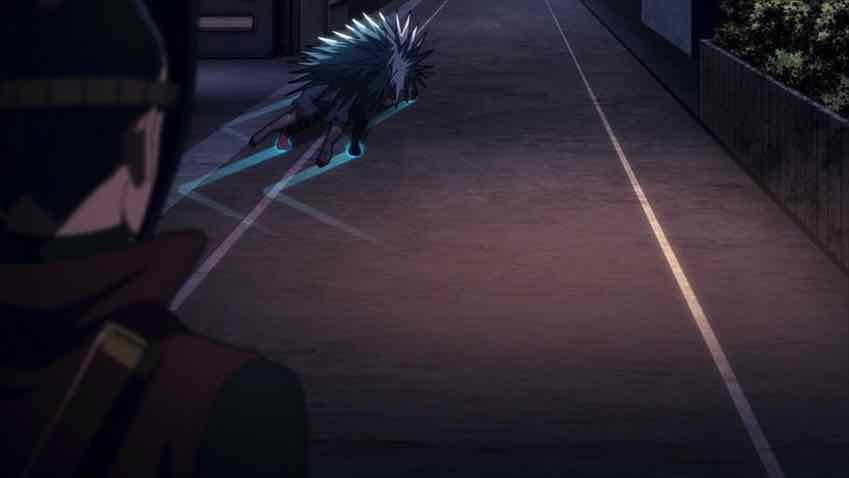
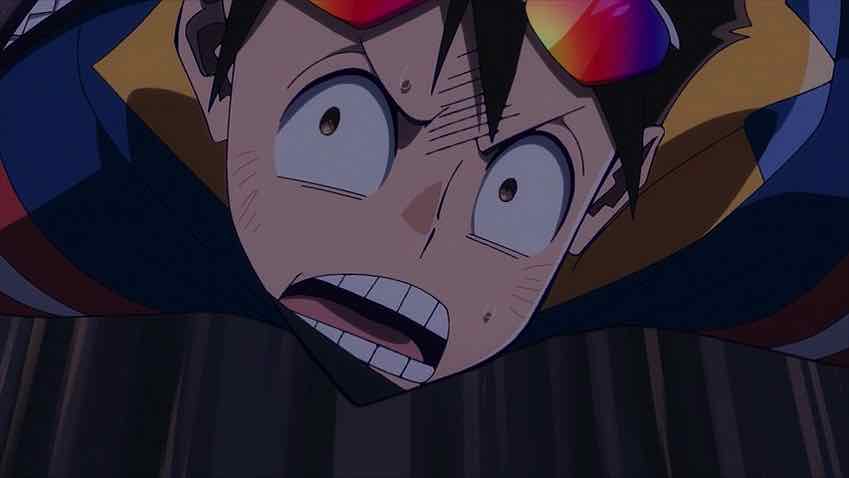
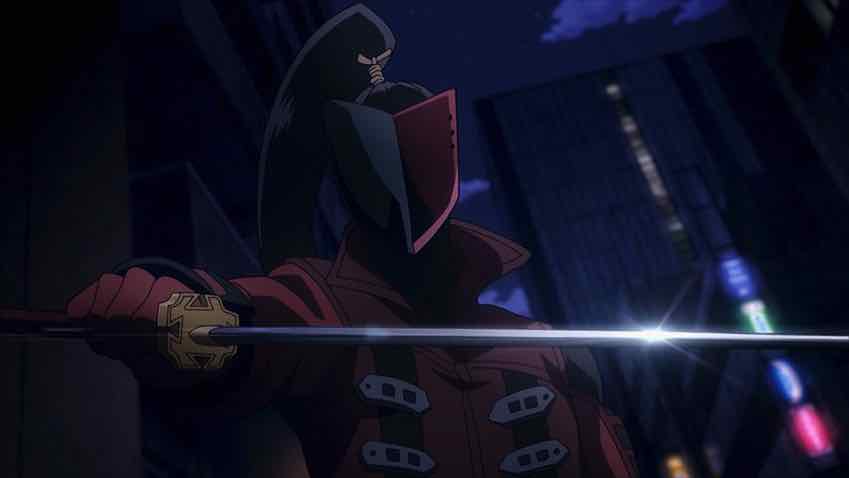
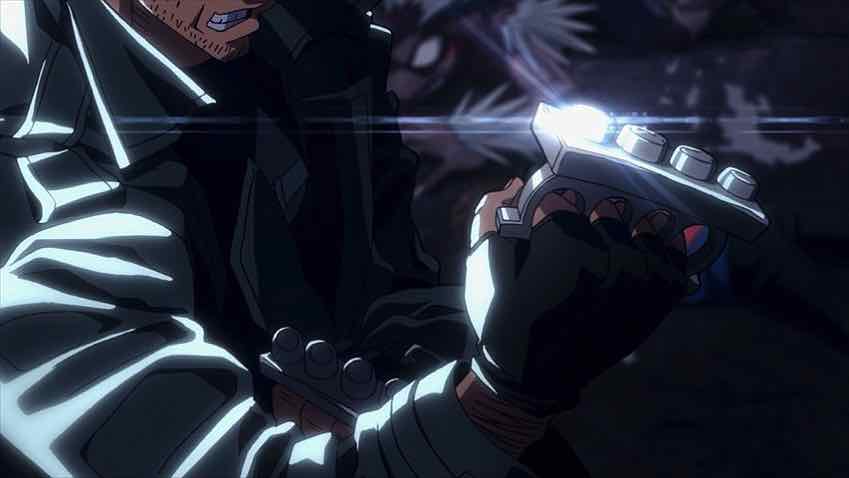
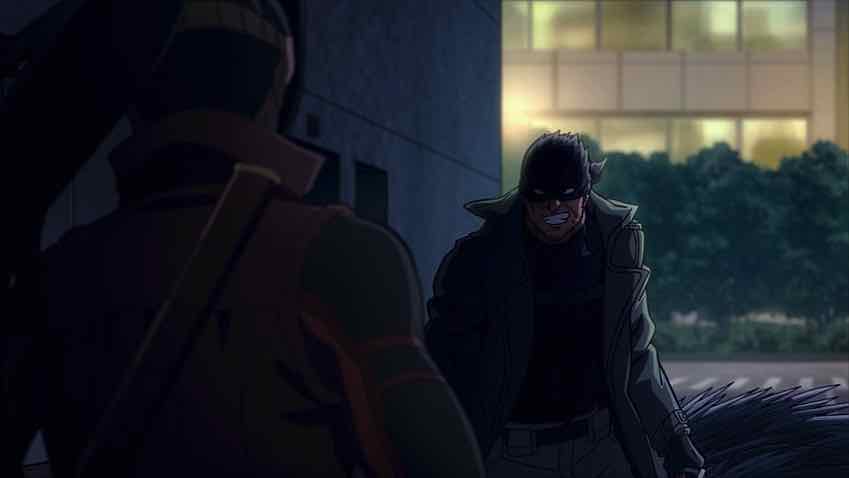
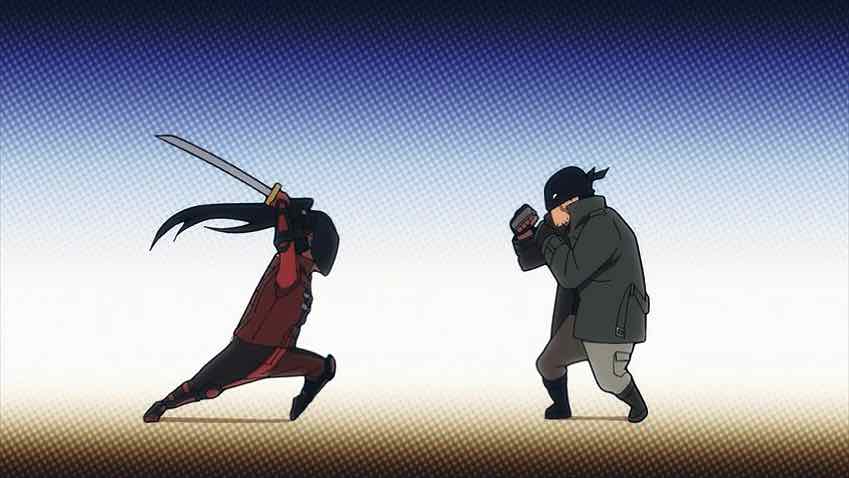
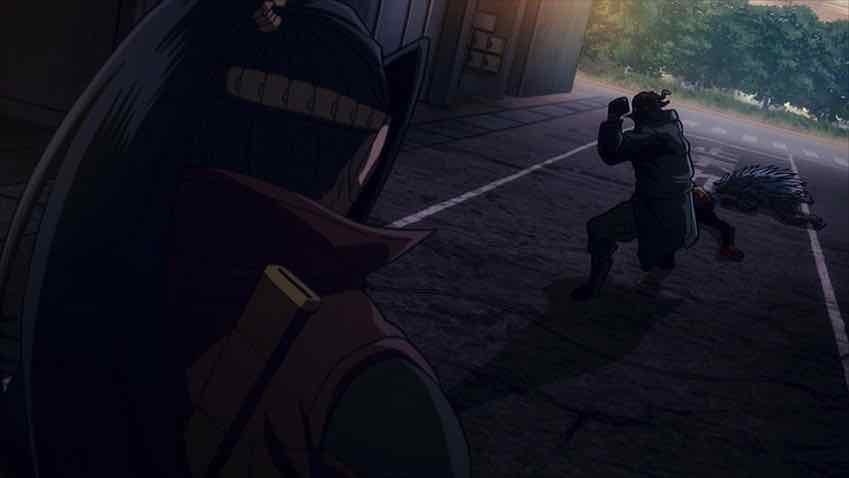
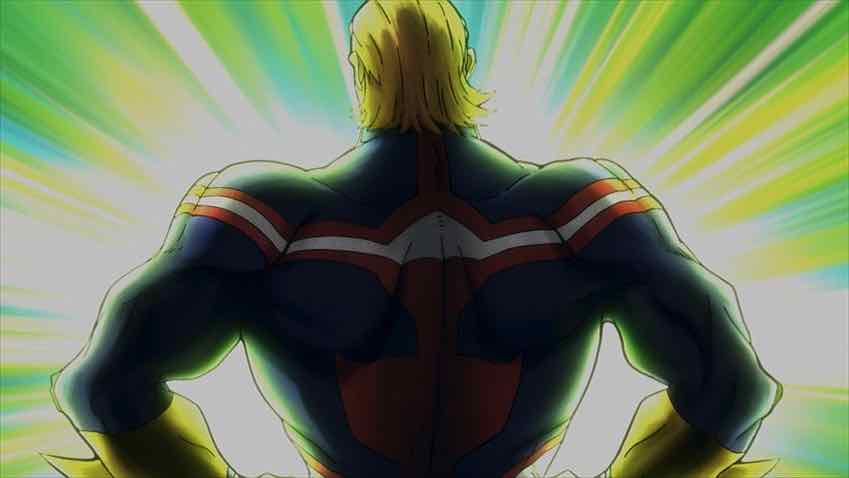
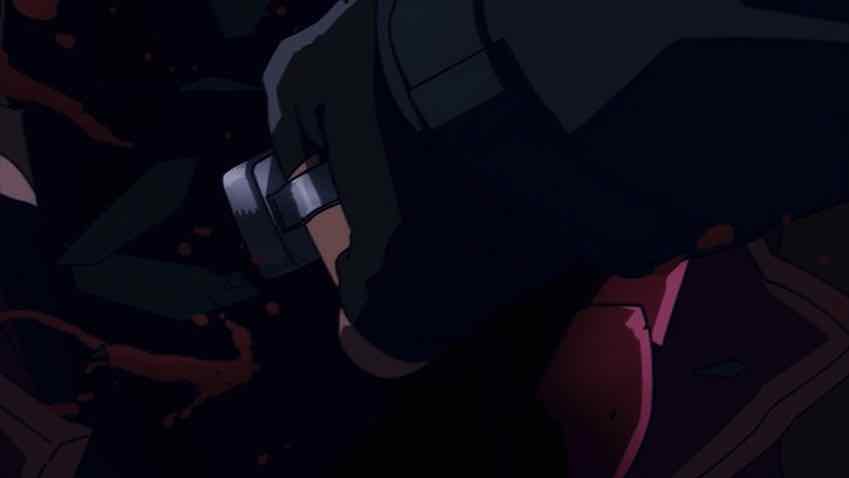
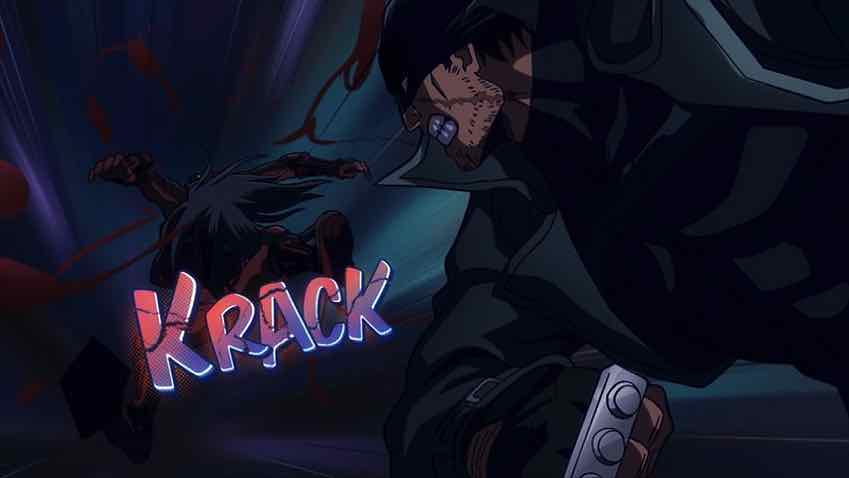
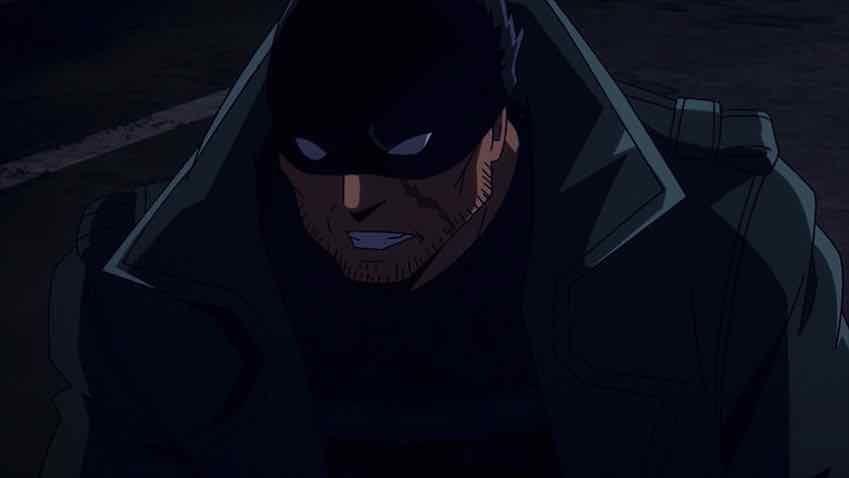
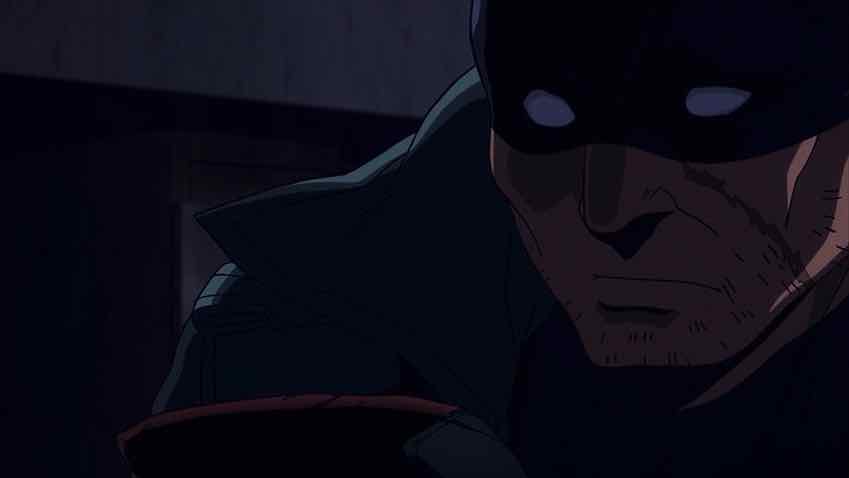
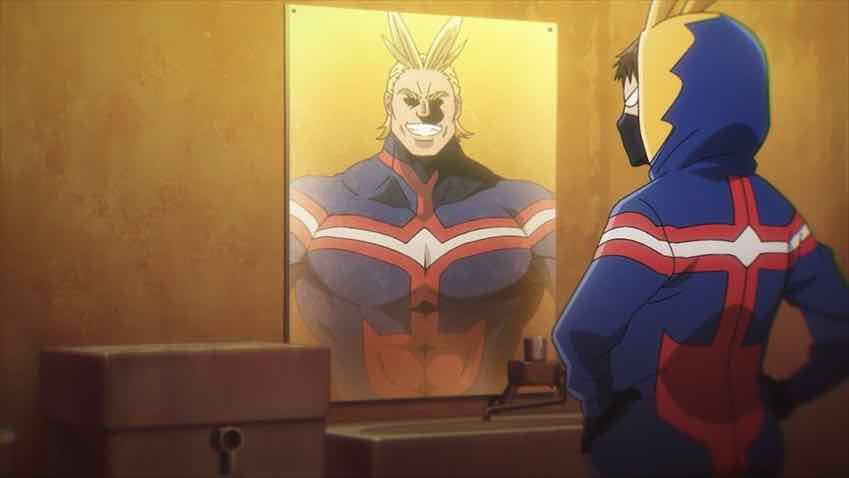
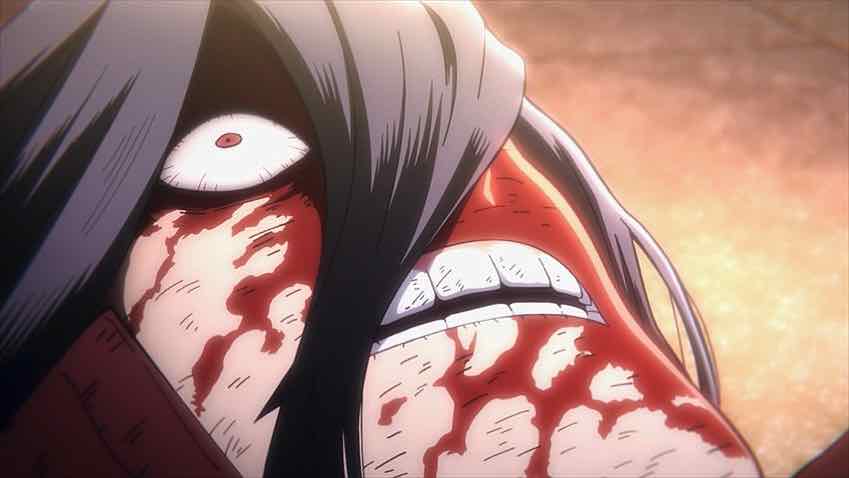
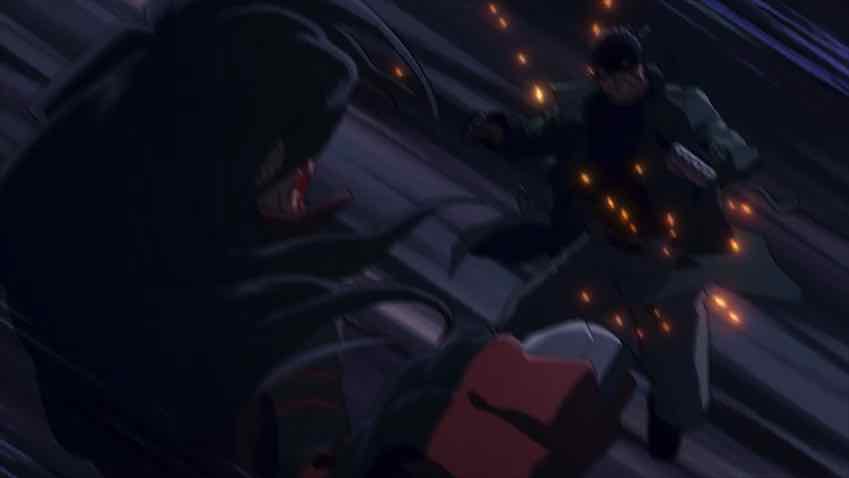
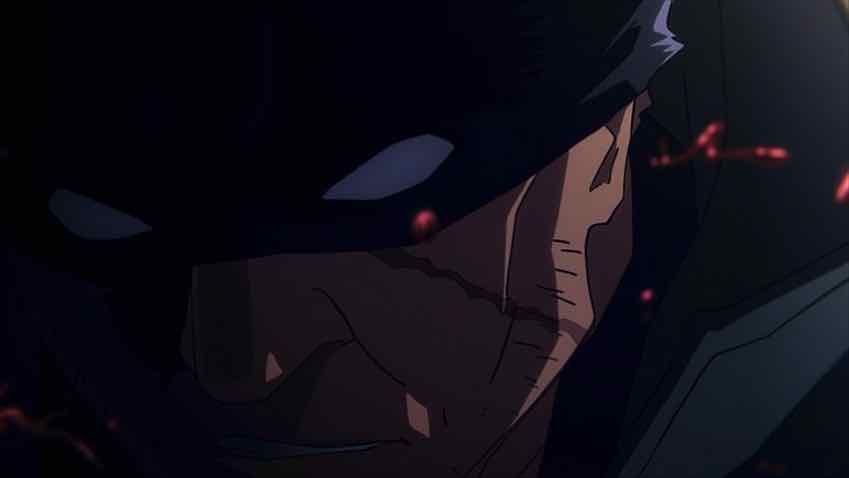
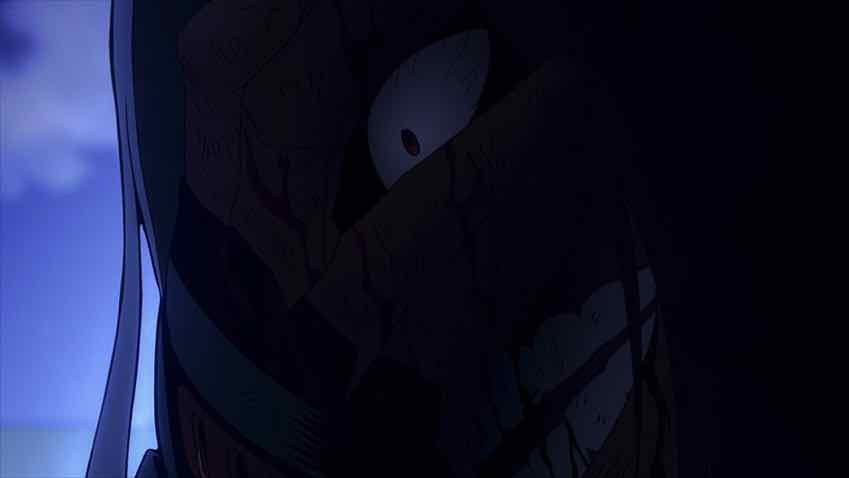
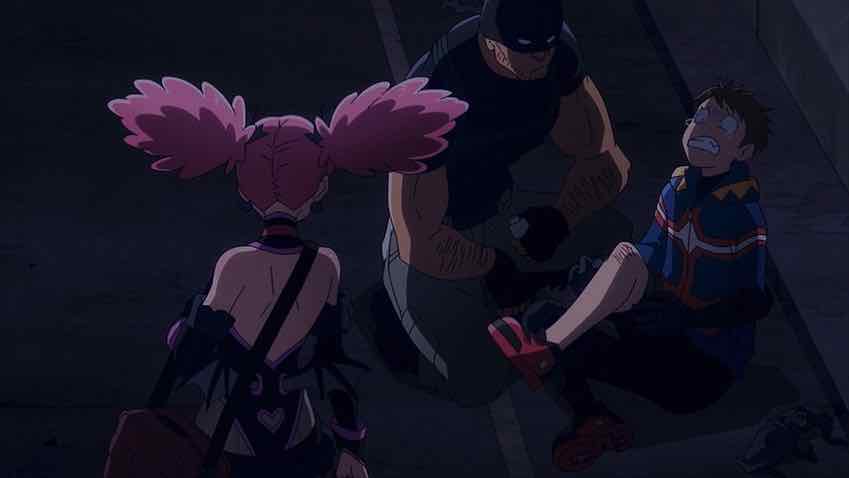

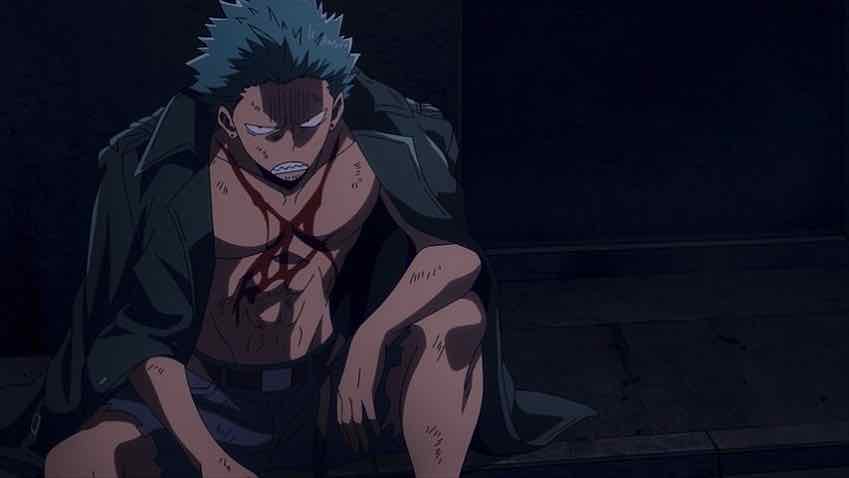
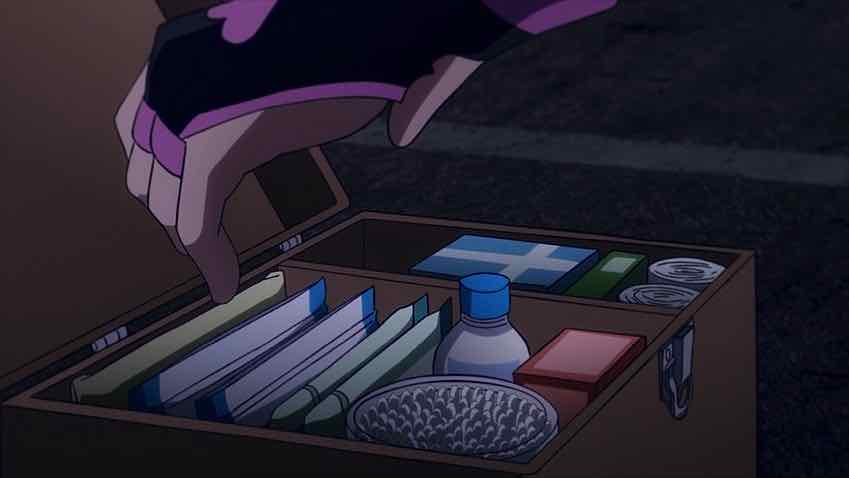
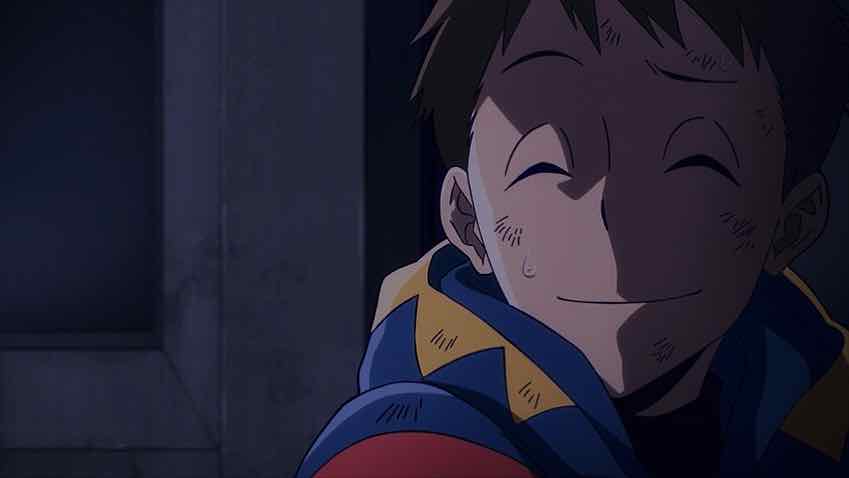
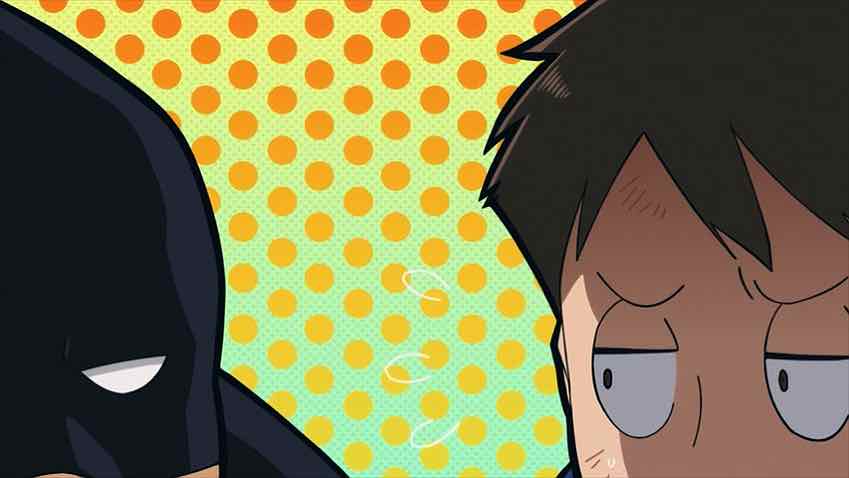
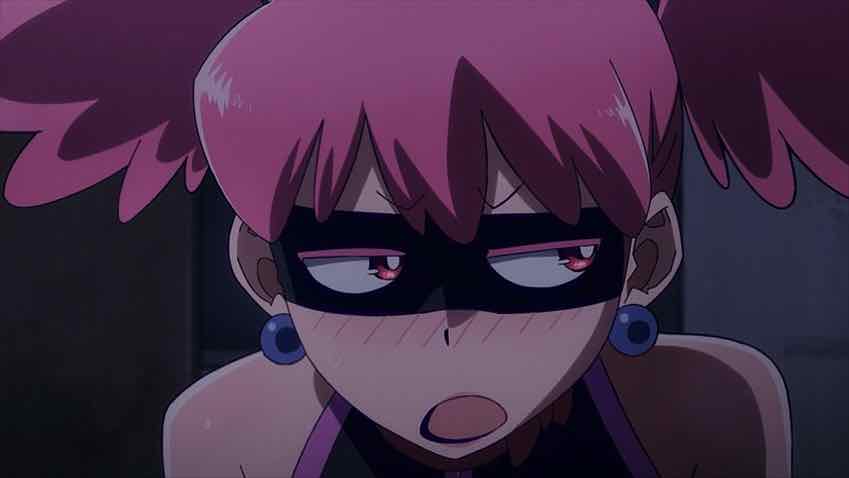
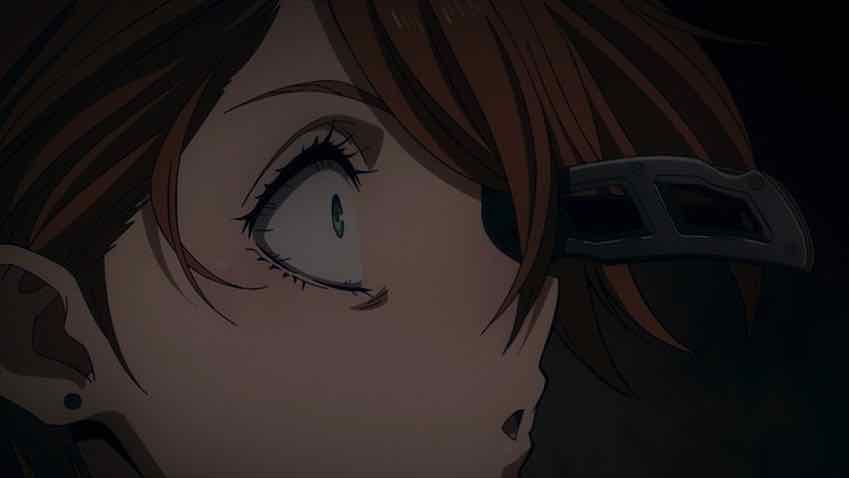

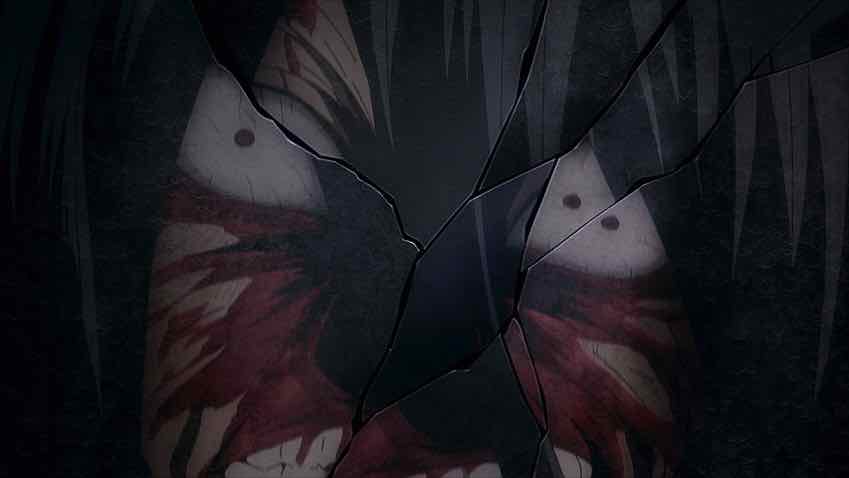
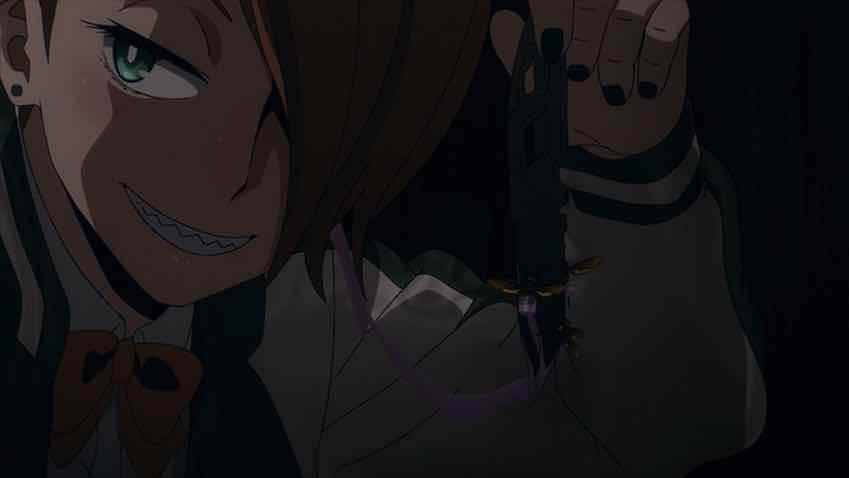


1 comment